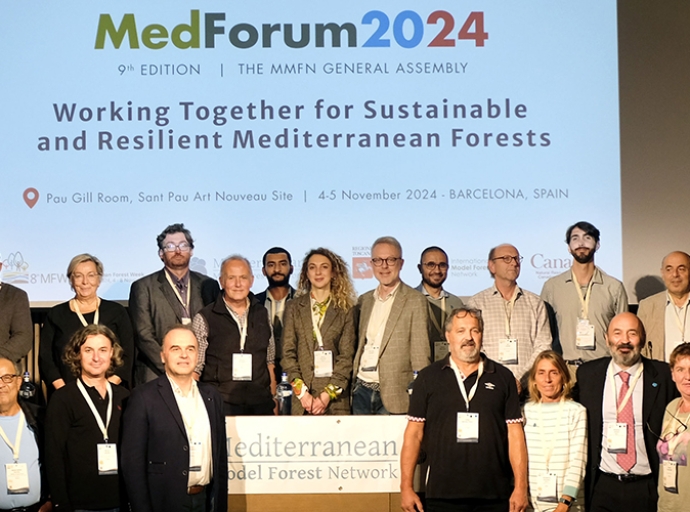
In a nutshell
Among the most forested areas in France, the forests in Provence-Alpes-Côte d’Azur are threatened by the risk of fire, growing urbanization and a reduction in traditional forest activities, pushing local stakeholders to re-examine the place and multifunctional role of regional forests.
The communities, businesses and associations in the region have come together to jointly promote the sustainable management of natural spaces through the development of the most emblematic large forests in Provence: Garlaban, Étoile, Sainte Baume and Maures.
The Provence Model Forest is looking to be a model for innovation and environmental performance, uniting all stakeholders in a common vision for the forests and the sharing of everyone’s knowledge and experience.
Year of affiliation IMFN
2012
Location
Pavillon de chasse du Roy René - Valabre CD7
13120 Gardanne - FRANCE
Phone
+33 064258 31 54

The territory of the Provence Model Forest, corresponding to 10% of the surface area of the Provence-Alpes-Côte d’Azur region is 61% covered by forest. To the west the subsoil is limestone, whereas to the east it is granitic. The landscapes are dominated by open forests (32%) and conifer seedling forests (23%).
The breakdown of forest properties in the Provence Model Forest represents a strong fragmentation, with 80% of the properties being privately owned and 20% being in the public domain. The territory covers 17,060 hectares of certified forest under the Programme for Endorsement of Forest Certification Schemes, 60% of which are in the form of community forests. The perimeter represents a biodiversity hotspot in the region and the French Mediterranean bioclimatic zone.
According to the National Forest Inventory, only 30% of the forest is deemed to be easily exploitable. Lumber and firewood are the largest forestry industries; there are also cork, beekeeping and chestnut-growing operations.
The Provence Model Forest is representative of the coastal region of the Provence-Alpes-Côte-d’Azur region where forest spaces are under pressure by human activities. The limited extent of agricultural lands and strong urban expansion are leading to a significant inter-relation between forests and artificial zones.
The expectations of residents and tourists regarding the region’s forests have evolved. Forests are increasingly seen as natural recreational spaces and less as production or exploitation zones. For some, social demand does not always seem compatible with certain economic interests and development issues.
The risk of fire is very high in the Provence-Alpes-Côte d’Azur region. This risk is even higher in coastal, peri-urban and tourist zones, such as the territory where the Provence Model Forest is located.








